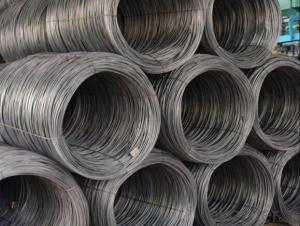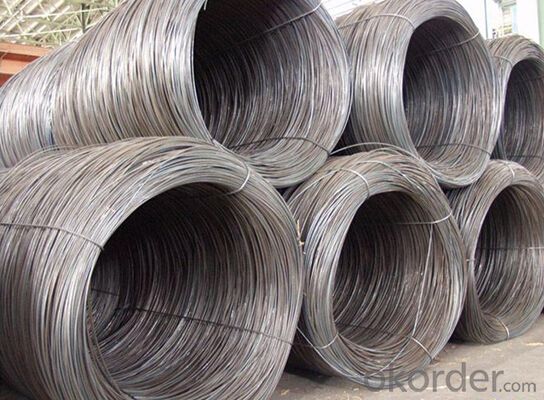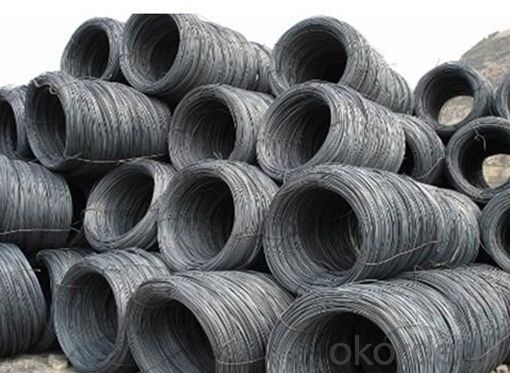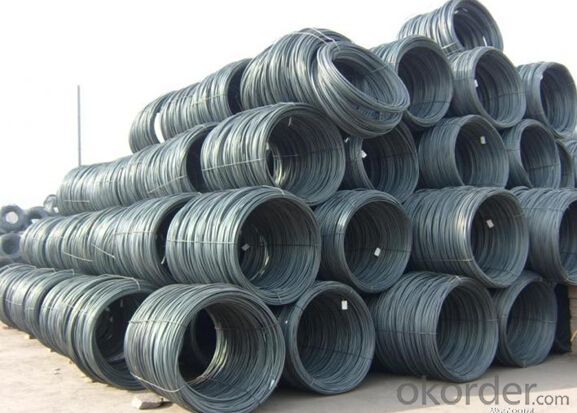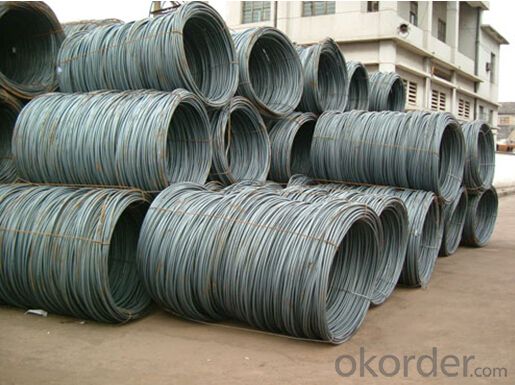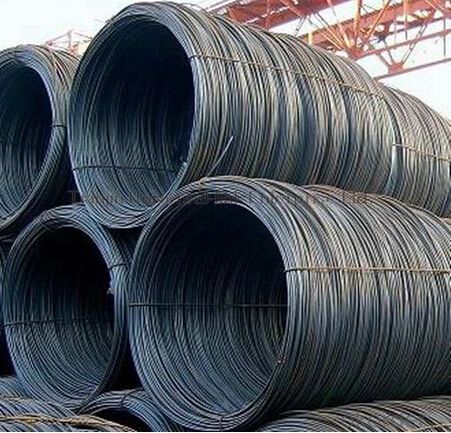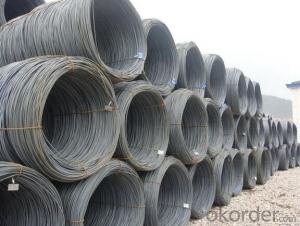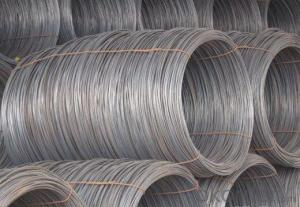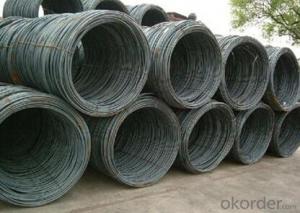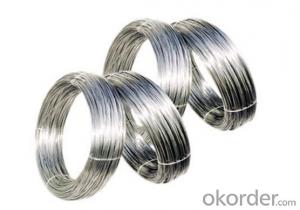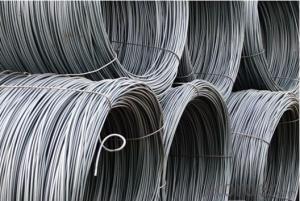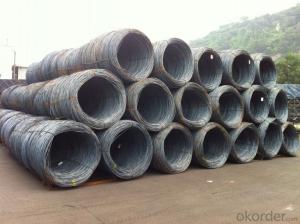Grade SAE1008B/1012B/1018B/1022B Hot Rolled Steel Wire Rod in Coils
- Loading Port:
- Tianjin
- Payment Terms:
- TT OR LC
- Min Order Qty:
- 3 m.t.
- Supply Capability:
- 10000 m.t./month
OKorder Service Pledge
Quality Product, Order Online Tracking, Timely Delivery
OKorder Financial Service
Credit Rating, Credit Services, Credit Purchasing
You Might Also Like
Specification
Type:
Carbon Steel,Spring Steel,Bearing Steel,Gear Steel,Deformed Steel,Stainless Steel,Alloy Steel
Shape:
Steel Coil,Steel Sheet,Steel Wire Rod,Steel Flat Bar,Steel Square Bar,Steel Angle,Steel Round Bar,Steel Billets
Technique:
Hot Rolled,Cold Rolled,Cold Drawn,ERW,Forged,Saw,Extruded,EFW,Spring
Surface Treatment:
Galvanized,Coated,Copper Coated,Color Coated,Oiled,Dry,Chromed Passivation,Polished,Bright,Black,PVDF Coated
Certification:
ISO,SGS,BV,IBR,RoHS,CE,API,BSI,UL
Thickness:
6.5mm-12mm
Width:
6.5mm-12mm
Length:
In coils
Outer Diameter:
6.5mm-12mm
Net Weight:
2m.t.
Packaging:
Seaworthy packaging
Grade SAE1008B/1012B/1018B/1022B Hot Rolled Steel Wire Rod in Coils
Detailed Information of the Grade SAE1008B/1012B/1018B/1022B Hot Rolled Steel Wire Rod in Coils
| Name | Hot Rolled High Carbon Wire Rod |
| Shape | Round Bar/Square Bar/Flat Bar/Plate/Wire |
| Standard | GB/ASTM/SAE/AISI/DIN/JIS/EN/BS |
| Surface Treatment: | Black/Peeling/Polished/Machined |
| Delivery Condition: | Hot Rolled or Forged/Peeled or Black Surface |
| Test | SGS/UT 100% Elements Testing |
| Certificate: | ISO/Mill Certificate |
| Service: | 24 hours online service / |
| more than 20 years trading and manufacture | |
| Quality Assurance: | the third party inspection, such as SGS, BV, TUV…etc. is acceptable |
| Packaging Details: | Seaworthy Packaging or as per customer's packing instruction |
Chemical Composition of the Grade Grade SAE1008B/1012B/1018B/1022B Hot Rolled Steel Wire Rod in Coils
| Grade | Chemical Composition(%) | |||||
| C | Mn | Si | S | P | B | |
| SAE1008 | 0.1max. | 0.3~0.50 | 0.15max | 0.050max | ≤0.040 | >0.0008 |
| Mechanical properties | ||||||
| Yield strength(N/mm2) | Tensile strength(N/mm2) | Elongation(%) | ||||
| 250-280 | 350-380 | ≥32 | ||||
Company Introduction the Grade Grade SAE1008B/1012B/1018B/1022B Hot Rolled Steel Wire Rod in Coils
CNBM International Corporation is the most import and export platform of CNBM group(China National Building Material Group Corporation) ,which is a state-owned enterprise, ranked in 270th of Fortune Global 500 in 2015.
With its advantages, CNBM International are mainly concentrate on Cement, Glass, Iron and Steel, Ceramics industries and devotes herself for supplying high quality series of refractories as well as technical consultancies and logistics solution.
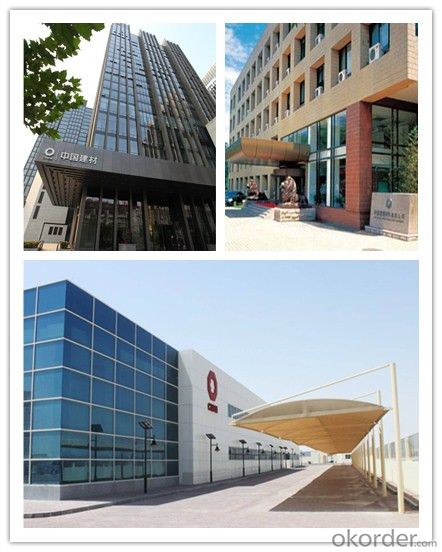
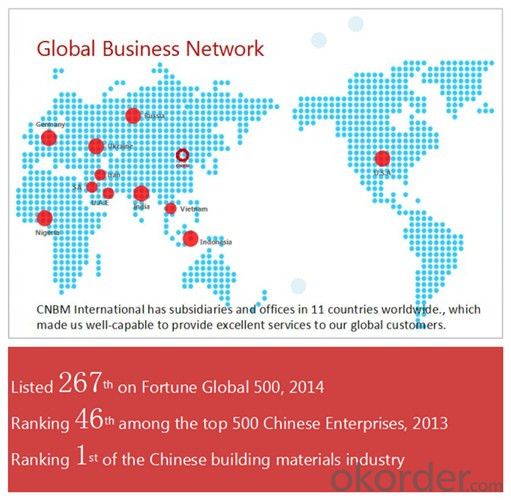
| After-sale service | CNBM provides the services and support you need for every step of our cooperation. We’re the business partners you can trust; you can relax and get on with doing business. |
| For any problem, please kindly contact us at any your convenient time, we’ll reply you in our first priority within 24 hours | |
| Advantages | Industry experience over 20 years. |
| Shipment of goods -More than 70 countries worldwide. | |
| The most convenient transport and prompt delivery. | |
| Competitive price with best service. | |
| High technical production line with top quality products. | |
| High reputation based on best quality products. |
Packaging & Delivery the Grade SAE1008B/1012B/1018B/1022B Hot Rolled Steel Wire Rod in Coils
| Packaging Detail | Sea worthy packing /as per customer's packing instruction |
| Delivery Detail | 15 ~ 40 days after receiving the deposit |
Products Show
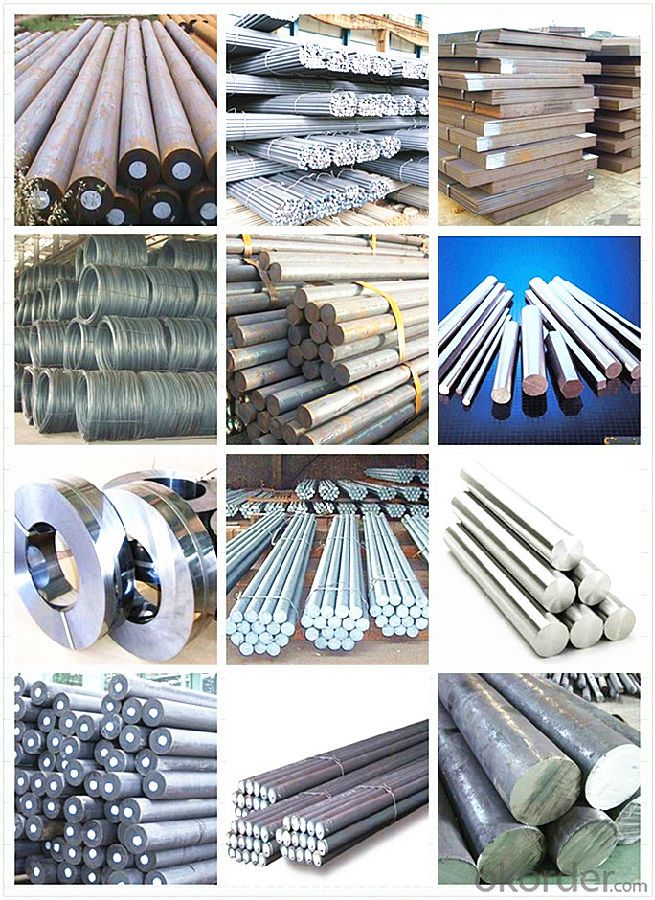
FAQ:
| Are you a trader or manufacturer? | Manufacturer |
| What’s the MOQ? | 3 metric ton |
| What’s your delivery time? | 15-35 days after downpayment received |
| Do you Accept OEM service? | Yes |
| what’s your delivery terms? | FOB/CFR/CIF |
| What's the Payment Terms? | 30% as deposit,70% before shipment by T/T |
| Western Union acceptable for small amount. | |
| L/C acceptable for large amount. | |
| Scrow ,Paybal,Alipay are also ok | |
| Why choose us? | Chose happens because of quality, then price, We can give you both. |
| Additionally, we can also offer professional products inquiry, products knowledge train (for agents), smooth goods delivery, excellent customer solution proposals. | |
| What's your available port of Shipment? | Main Port, China |
| What’s your featured services? | Our service formula: good quality+ good price+ good service=customer's trust |
| Where are your Market? | Covering more than 160 countries in the world |
- Q: How is high-temperature steel used in power generation equipment?
- High-temperature steel is used in power generation equipment due to its exceptional heat resistance properties. It is specifically employed in components such as boiler tubes, turbine blades, and exhaust systems, where intense heat and pressure are present. This steel's ability to withstand extreme temperatures ensures efficient energy conversion and maximizes the overall performance and reliability of power generation equipment.
- Q: What are the different methods of testing special steel for quality assurance?
- There are several methods commonly used for testing special steel to ensure quality assurance. These methods include: 1. Chemical Analysis: This involves determining the composition of the steel by analyzing its chemical elements and their respective quantities. This helps to ensure that the steel meets the specified requirements and is free from any impurities. 2. Mechanical Testing: Mechanical testing assesses the strength, hardness, and other mechanical properties of the steel. Tensile tests, hardness tests, impact tests, and fatigue tests are some of the common mechanical tests performed on special steel. These tests help to evaluate the steel's performance under different conditions and ensure it meets the required standards. 3. Non-Destructive Testing (NDT): NDT techniques are used to detect any surface or internal defects in the steel without causing any damage. Magnetic particle testing, ultrasonic testing, radiographic testing, and dye penetrant testing are commonly employed methods for NDT. These tests are crucial in identifying any flaws that may compromise the steel's structural integrity. 4. Metallurgical Analysis: Metallurgical analysis involves the microscopic examination of the steel's microstructure to assess its quality. This analysis helps to identify any grain size variations, inclusions, or phase transformations that might affect the steel's performance. Metallography, optical microscopy, and electron microscopy are commonly used techniques for metallurgical analysis. 5. Corrosion Testing: Special steel is often exposed to harsh environments, making corrosion resistance a critical quality parameter. Corrosion testing evaluates the steel's resistance to corrosion in various conditions. Salt spray testing, electrochemical testing, and exposure to corrosive environments are some methods used for corrosion testing. 6. Dimensional Inspection: Dimensional inspection ensures that the special steel meets the specified dimensional requirements. This involves measuring the steel's dimensions, including length, width, thickness, and other critical dimensions, using calibrated instruments. By employing these various methods, manufacturers can thoroughly test special steel and ensure that it meets the required quality standards. This comprehensive testing helps to guarantee the performance, durability, and reliability of the steel in various applications.
- Q: What are the main factors affecting the corrosion resistance of special steel?
- There are several main factors that can affect the corrosion resistance of special steel. Firstly, the composition of the steel plays a crucial role in determining its corrosion resistance. Special steels are typically alloyed with elements such as chromium, nickel, and molybdenum, which form a protective oxide layer on the surface of the steel. This layer acts as a barrier against corrosive substances, preventing them from reaching the underlying steel and causing corrosion. The higher the percentage of these alloying elements, the better the corrosion resistance of the steel. Secondly, the presence of impurities or contaminants in the steel can greatly affect its corrosion resistance. Any impurities or contaminants, such as sulfur or phosphorous, can compromise the protective oxide layer and make the steel more susceptible to corrosion. Therefore, the purity of the steel, as well as the manufacturing process used, is important in ensuring good corrosion resistance. Thirdly, the surface finish of the steel can also impact its corrosion resistance. A smooth and polished surface can help reduce the likelihood of corrosion, as it minimizes the areas where corrosive substances can accumulate and penetrate the steel. Additionally, surface treatments such as passivation or coating can further enhance the corrosion resistance of special steel. Furthermore, the environment in which the steel is exposed to is another critical factor. Different environments have varying levels of corrosive substances, such as moisture, acids, or salts, which can accelerate the corrosion process. For instance, marine environments with high salt content are particularly corrosive, requiring special steel grades that offer superior resistance to such conditions. Lastly, the temperature at which the steel operates can influence its corrosion resistance. Some special steels, such as stainless steel, exhibit excellent corrosion resistance at elevated temperatures, making them suitable for high-temperature applications where other materials may corrode. In summary, the main factors affecting the corrosion resistance of special steel include its composition, the presence of impurities, the surface finish, the environment it is exposed to, and the operating temperature. By considering these factors and selecting the appropriate steel grade, one can ensure optimal corrosion resistance for specific applications.
- Q: What are the different forging grades of special steel?
- There are several different forging grades of special steel, including but not limited to stainless steel, alloy steel, carbon steel, tool steel, and high-speed steel.
- Q: What are the properties of magnetic stainless steel?
- Magnetic stainless steel possesses the unique property of being attracted to magnets due to its high iron content. It is also corrosion resistant, making it suitable for various applications in industries such as construction, automotive, and kitchenware. Additionally, it retains its strength and durability even in extreme temperatures, making it a versatile material for different environments.
- Q: How does special steel perform in welding applications?
- Special steel performs well in welding applications due to its high strength, excellent heat resistance, and superior weldability. Its unique composition and alloying elements allow for precise control of the welding process, resulting in high-quality, durable welds. Additionally, special steel's ability to resist cracking and deformation during welding ensures reliable performance and structural integrity in various applications.
- Q: How is special steel used in the railway supply chain?
- Special steel is used in the railway supply chain for various applications such as manufacturing railway tracks, wheels, axles, and components. It offers superior strength, durability, and resistance to wear and tear, ensuring safe and efficient transportation. Special steel's unique properties make it an essential material in constructing reliable and high-performance railway infrastructure.
- Q: How is special steel used in the manufacturing of industrial machinery?
- Special steel is used in the manufacturing of industrial machinery due to its exceptional properties such as high strength, hardness, and resistance to wear and corrosion. It is commonly used to create components like gears, shafts, and bearings, which are critical for the smooth and efficient functioning of machinery. Additionally, special steel can withstand extreme temperatures and pressures, making it suitable for applications in heavy-duty machinery and equipment, ensuring reliability and durability in industrial settings.
- Q: What are the future trends and innovations expected in special steel production?
- The special steel production industry is anticipated to undergo significant changes in the future. Several trends and innovations will shape this industry, and the following key areas are expected to see advancements: 1. Advanced Manufacturing Techniques: Special steel manufacturers will likely adopt advanced manufacturing techniques, such as additive manufacturing (3D printing) and digitalization. These technologies will facilitate the production of complex geometries, minimize waste, and allow for customization of special steel products. 2. Sustainable Production: Due to growing environmental concerns, there will be a focus on sustainable production methods in the special steel industry. This will involve adopting energy-efficient processes, recycling and reusing materials, and reducing the carbon footprint of steel production. 3. High-Strength and Lightweight Alloys: The demand for lightweight materials in sectors like automotive and aerospace will drive special steel production towards developing high-strength and lightweight alloys. These alloys will enhance performance while reducing component weight, leading to improved fuel efficiency and sustainability. 4. Nanotechnology and Microstructural Engineering: Nanotechnology and microstructural engineering will enhance the properties of special steels. By manipulating materials at the nanoscale, manufacturers can improve strength, toughness, corrosion resistance, and other characteristics. 5. Enhanced Surface Treatments: Advancements in surface treatments, such as coatings, will improve the performance and longevity of special steel products. Innovative surface treatments will offer increased resistance to wear, corrosion, and heat, expanding the range of applications for special steels. 6. Digitalization and Data Analytics: Special steel production will undergo a revolution with the integration of digital technologies and data analytics. Smart factories with interconnected systems will enable real-time monitoring, predictive maintenance, and improved quality control, resulting in higher productivity and efficiency. 7. Automation and Robotics: Automation and robotics will continue to play a vital role in special steel production, optimizing productivity, reducing human errors, and improving worker safety. This will enhance overall operational efficiency. 8. Industry 4.0 Integration: The special steel industry will embrace Industry 4.0 principles, including the Internet of Things (IoT) and artificial intelligence (AI). These technologies will enable seamless connectivity, intelligent decision-making, and predictive analysis, leading to improved productivity, cost-effectiveness, and competitiveness. In conclusion, the future of special steel production will be shaped by advancements in manufacturing techniques, sustainable practices, material engineering, digitalization, and automation. These innovations will not only enhance the performance and quality of special steel products but also contribute to a more sustainable and efficient industry.
- Q: How does special steel contribute to the manufacturing of valves and pumps?
- Special steel plays a crucial role in the manufacturing of valves and pumps. Its exceptional properties such as high strength, corrosion resistance, and heat resistance make it an ideal material choice. Special steel ensures the durability and reliability of valves and pumps, enabling them to withstand harsh conditions, high pressure, and extreme temperatures. Additionally, the precise composition and mechanical properties of special steel allow for efficient fluid flow control and efficient energy transfer in valves and pumps, enhancing their overall performance.
Send your message to us
Grade SAE1008B/1012B/1018B/1022B Hot Rolled Steel Wire Rod in Coils
- Loading Port:
- Tianjin
- Payment Terms:
- TT OR LC
- Min Order Qty:
- 3 m.t.
- Supply Capability:
- 10000 m.t./month
OKorder Service Pledge
Quality Product, Order Online Tracking, Timely Delivery
OKorder Financial Service
Credit Rating, Credit Services, Credit Purchasing
Similar products
Hot products
Hot Searches
Related keywords
